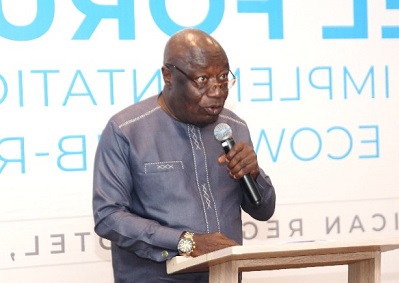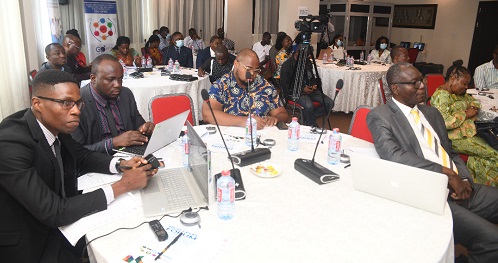
The Ministry of Environment, Science, Technology and Innovation (MESTI) is developing a framework and technology facilitation mechanism to mainstream Science, Technology and Innovation (STI) in all the productive sectors of the economy.
According to Dr Kwaku Afriyie, Minister of Environment, Science, Technology and Innovation, the move was to enable the scientific community play the leading role in the quest for national development.
In line with this, he noted that the country’s Science, Technology and Innovation Policy, which articulates the application of Science, Technology and Innovation in agriculture, education, health, industry, energy, water and sanitation, among others, towards job creation was currently under review.
Opening a two-day high level forum on STI in Accra yesterday, Dr Afriyie said, the focus of the review was to highlight the overall strengths and weaknesses of the system and determine policy regime and institutional arrangements that the country needs to build a dynamic system of innovation.
Organised by MESTI in collaboration with the ECOWAS Commission and the Ministry of Foreign Affairs and Regional Integration, the forum was geared towards the implementation of United Nations Educational, Scientific and Cultural Organisation’s (UNESCO) strengthening STI systems for Sustainable Development Project (SIDA Project).
The project sought to strengthen STI systems for sustainable development in six selected countries including Ghana, Namibia, Sierra Leone, Tanzania and Zimbabwe.
The specific proposed actions would ensure that governments and national science institutions in the six pilot countries would take measures to strengthen their national and regional STI policies, governance of STI as well as institutions in research and innovation in accordance with UNESCO 2017 Recommendation on Science and Scientific Researchers (2017 RS|SR).
“It is the vision of government to place Science, Technology and Innovation at the centre of socio-economic development by mainstreaming science and technology in all aspects of development,” he added.
Currently, the minister stated that, government, through the various ministries and institutions, had stepped up efforts to enhance technology entrepreneurship and incubation through the National Entrepreneurship and Innovation Programme (NEIP), the Start-up Bill and the Incubation Innovation Hubs, among others.
Additionally, he said, there were on-going initiatives such as promoting digital technologies for security and surveillance, and supporting multidisciplinary research into vaccines, strengthening STEM, implementation of 2017 UNESCO Recommendations on Science and Scientific Research (RS/SR), STI in support of AfCFTA, electronic waste management among others to promote the adoption of STI.
Deputy Minister of Foreign Affairs and Regional Integration, Kwaku Ampratwum-Sarpong said the realisation of sustainability in development required new knowledge which was offered by science and technology, hence the need to strengthen ST1 systems for sustainable development in Africa.
He said Ghana was ever ready to harness the benefits of STI for national development and stimulate discussions towards promoting partnerships for strengthening STIs among ECOWAS member states.
Ms Gabriella Ramos, Assistant Director-General of Social and Human Sciences, UNESCO, said wide-based approach was necessary if Ghana was to realise the benefits of SDGs.
Key among the approaches, she noted, was the adoption and implementation of efficient STI systems which could offer the basis for national development.
BY CLAUDE NYARKO ADAMS








